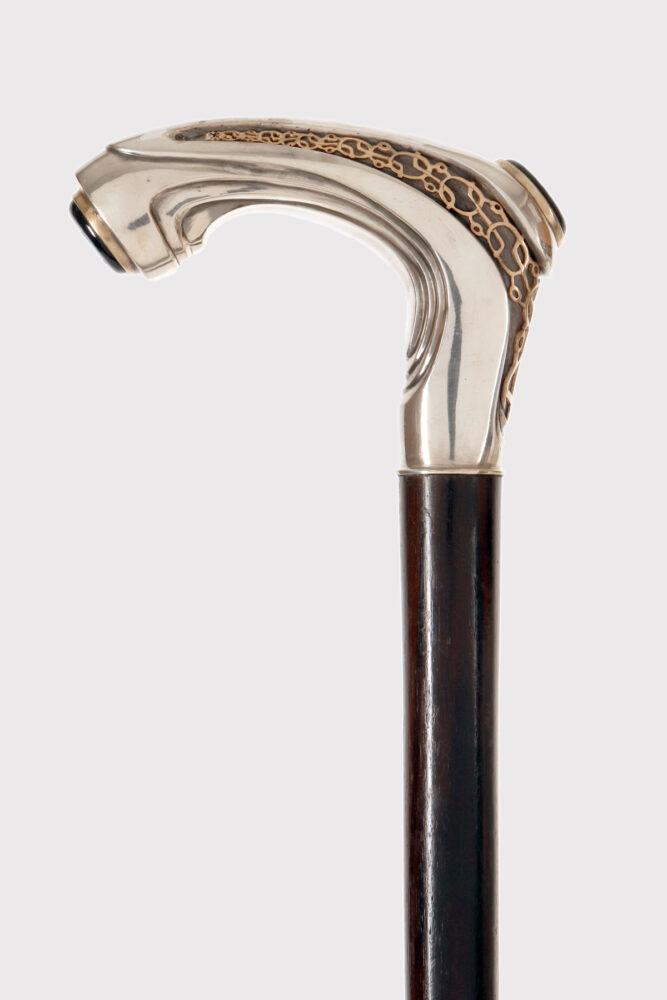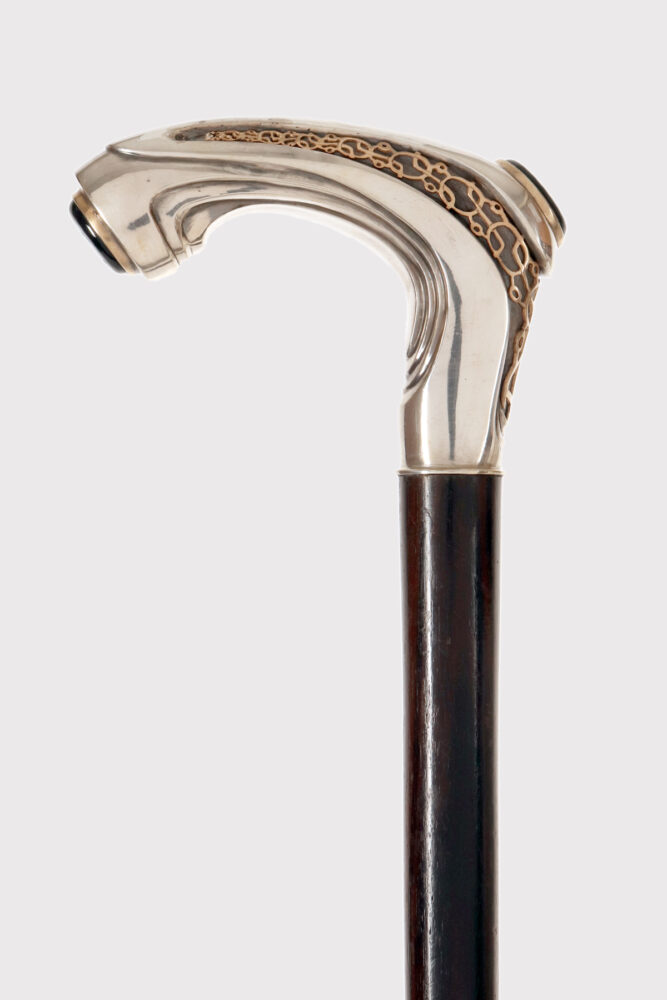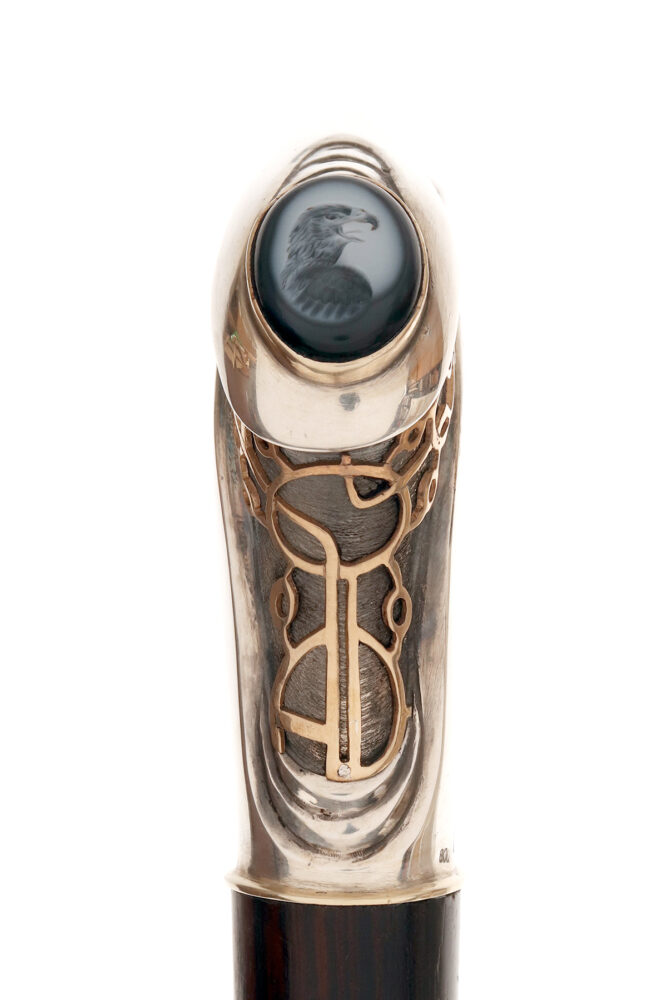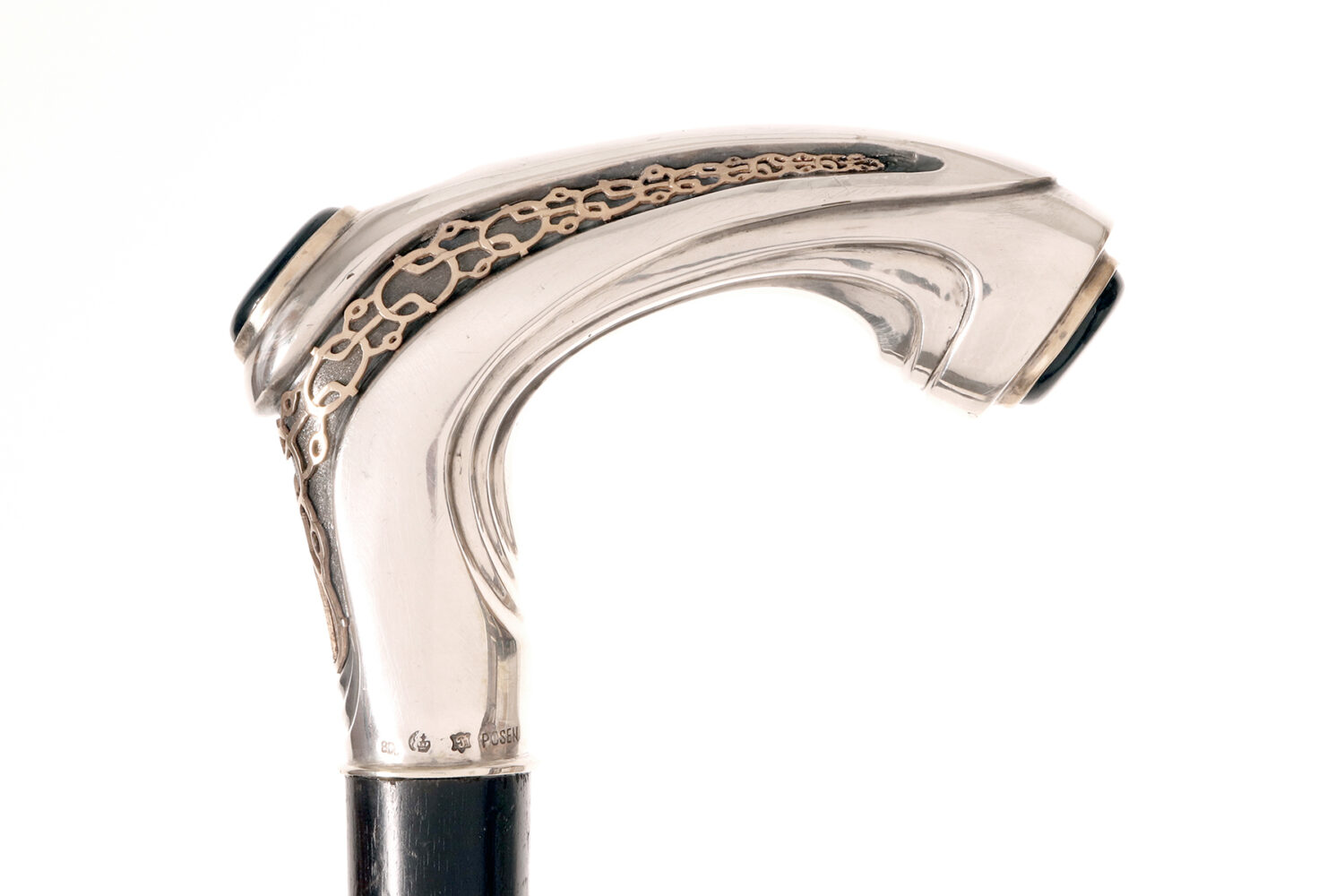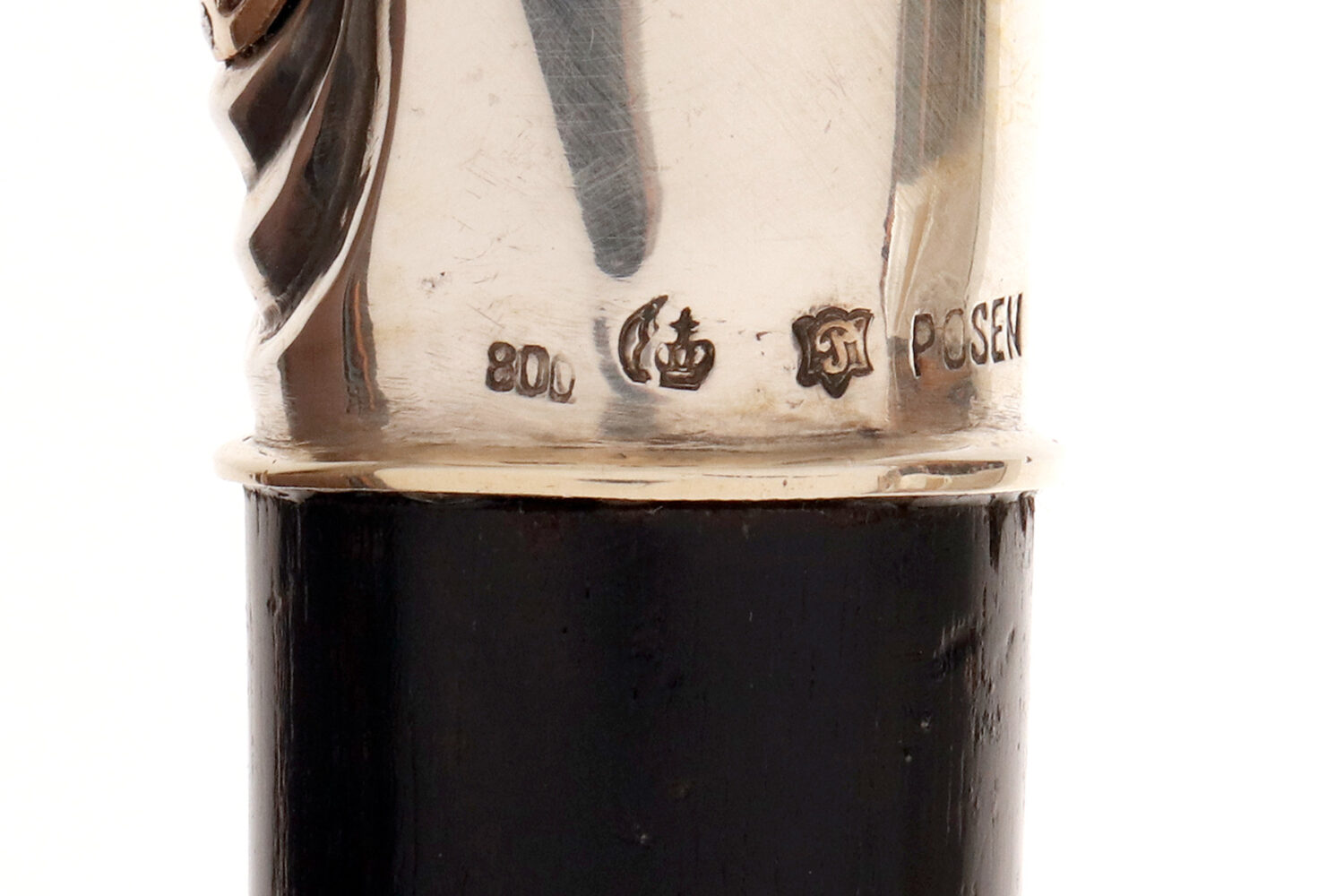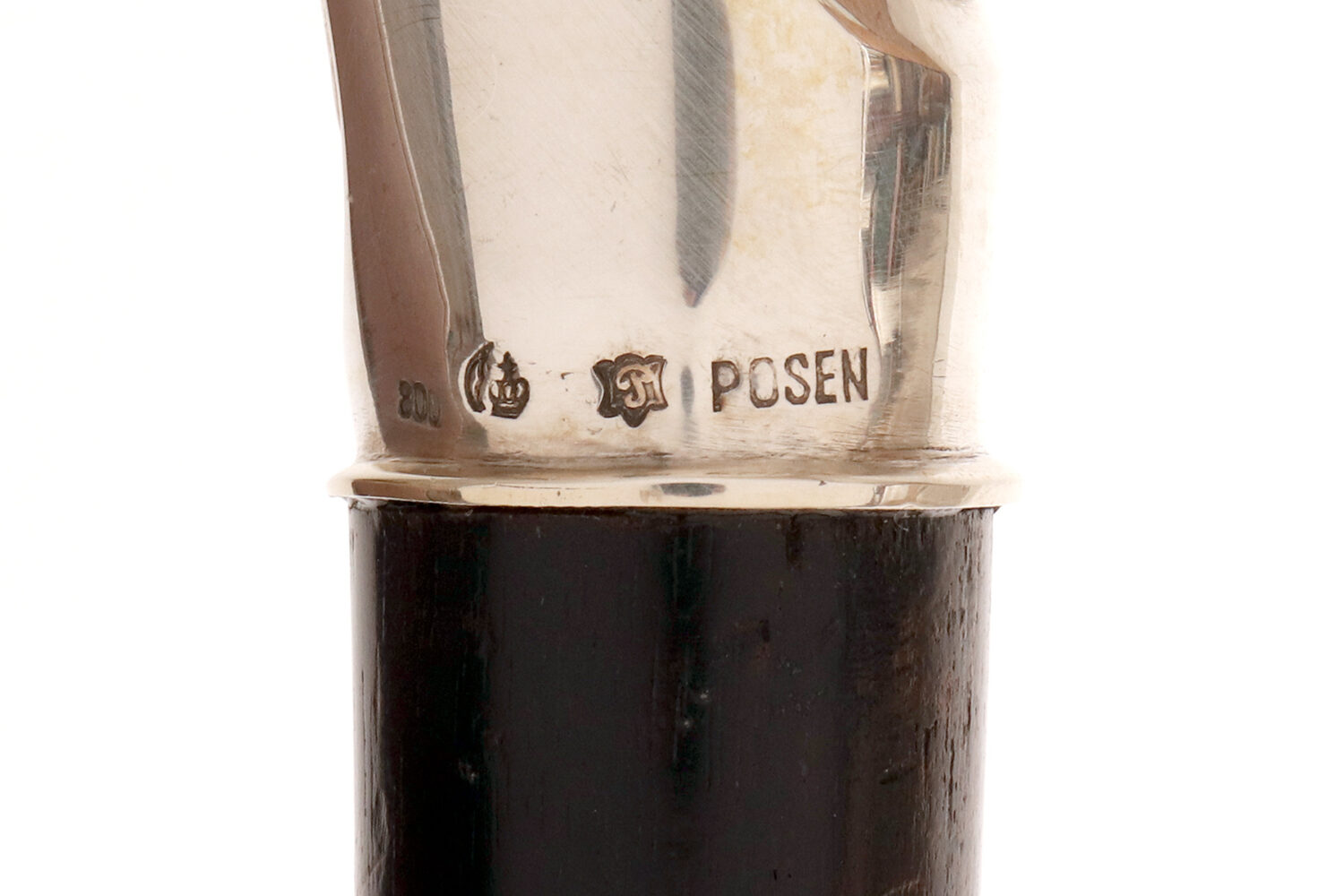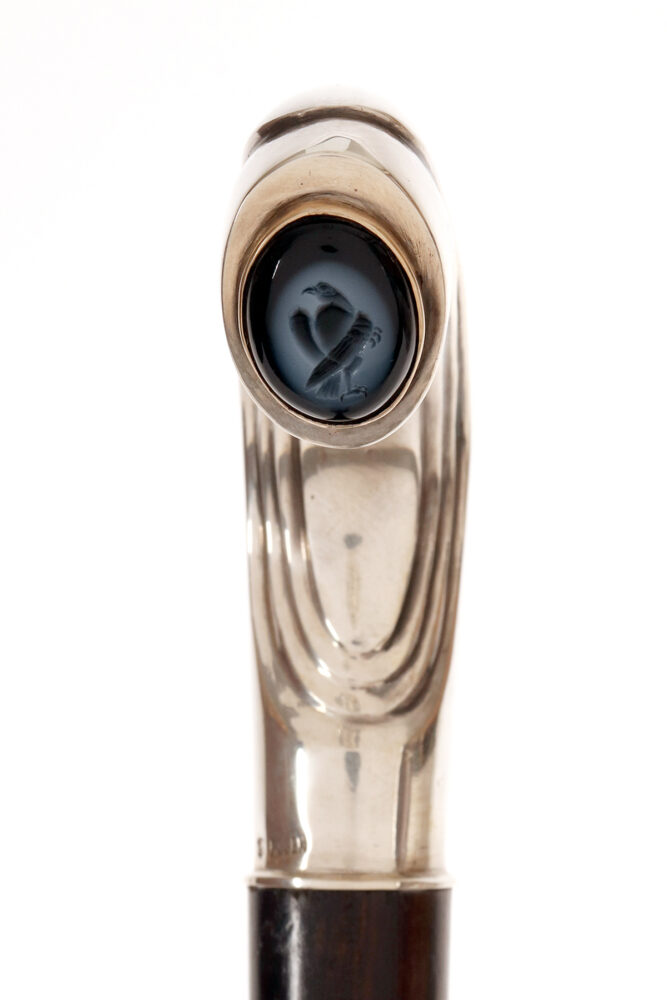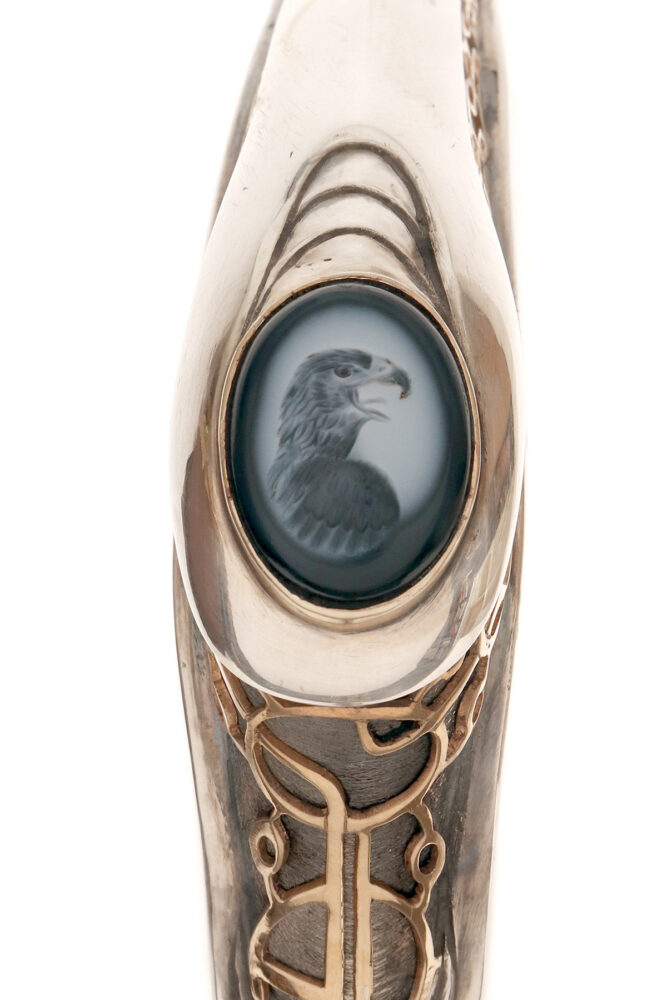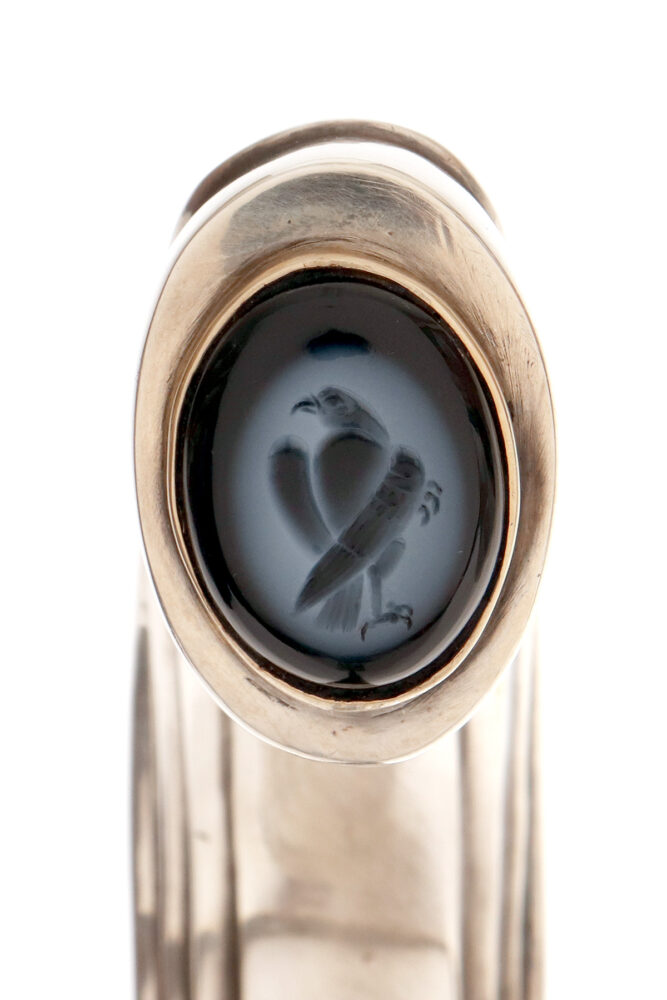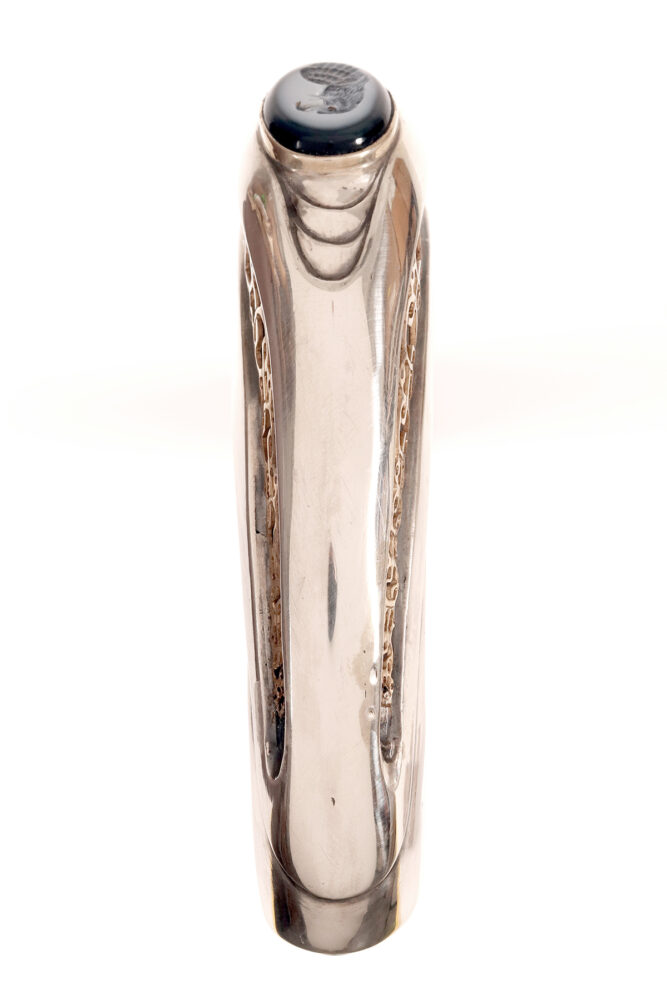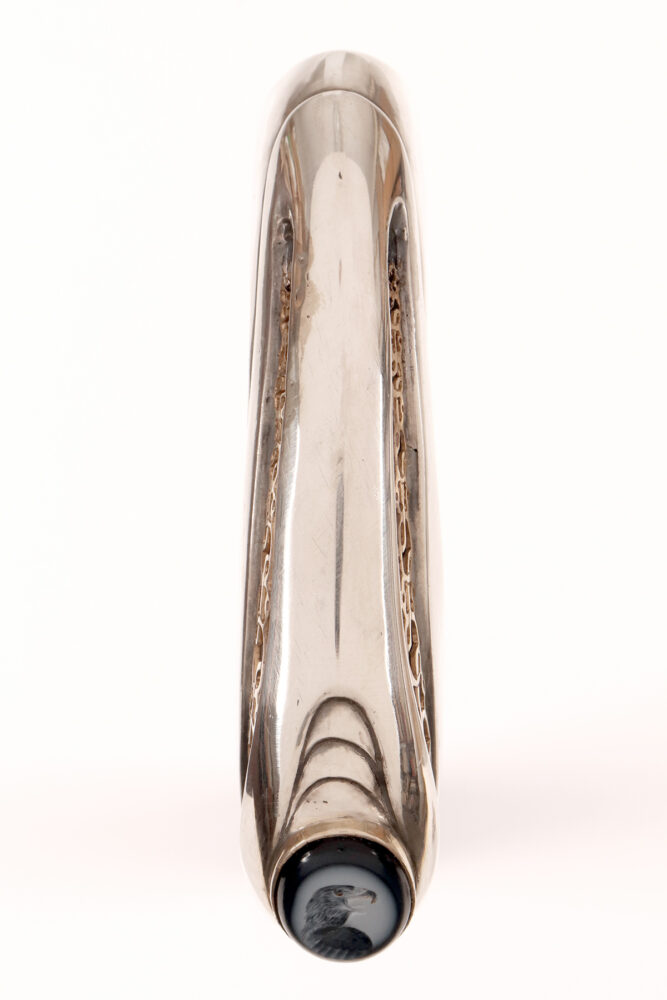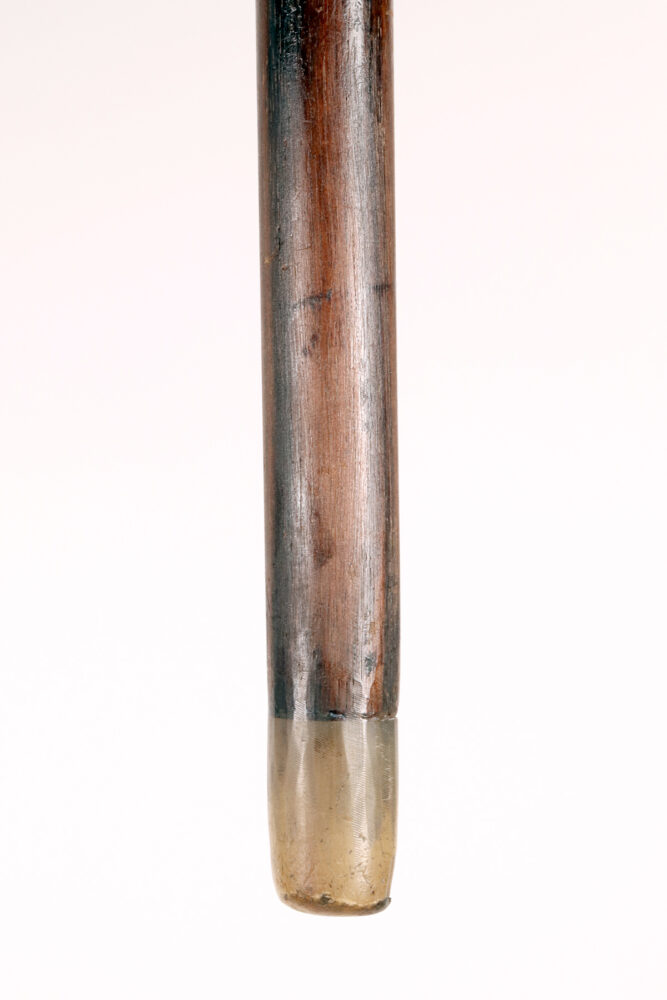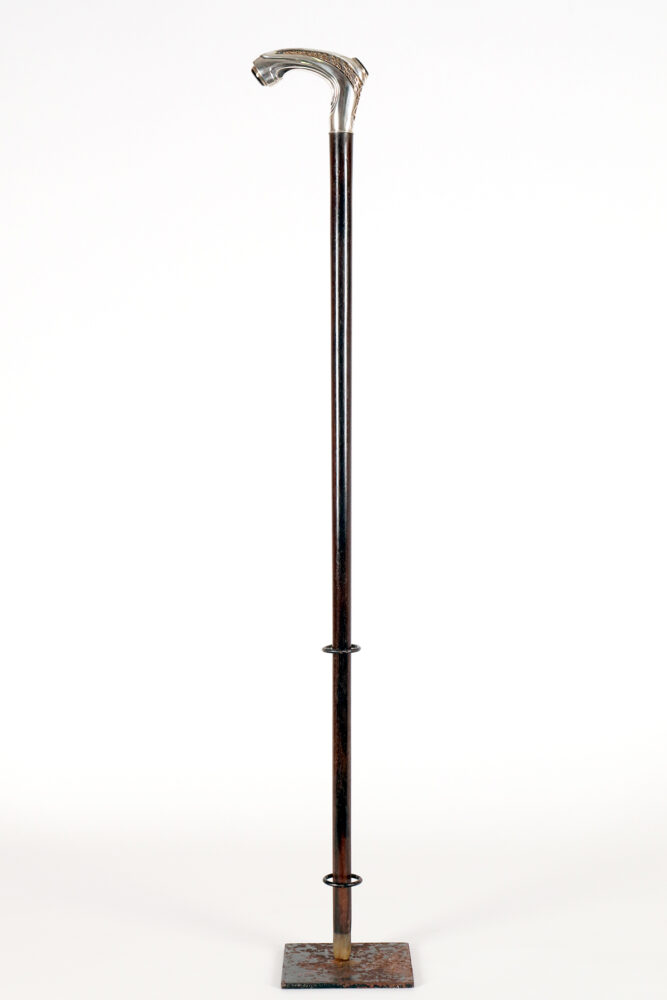Jewel walking stick, signed Lazarus Pozen Witwe, Frankfurt Germany end 19th century.
Germany end 19th century.
7500 EURO
Walking stick: a jeweled stick with a tactile L-shaped handle, played on the contrasts of 800/1000 silver and vermeil. Wide stepped silver arches surround niches in openwork vermeil depicting geometric shapes. The smooth and finely patinated curves of the silver are at the same time complemented and contrasted by the bright color of the openwork vermeil grid. At the two ends of the knob, two black striated agates are set, carved depicting two eagles, one with its head and beak open, the other perched seen from behind. Ebony Macassar wood cane with bovine horn tip. Signed Lazarus Pozen Witwe. The workshop of Lazarus Pozen Witwe was a rare business: it was founded, owned and operated by a Jewish woman, Brendina Wetzlar Posen (1833-1901), widow of the rabbi and silversmith Lazarus Jacob Pozen (1803-1865). Four years after his death, Brenfina opened her own prosperous business in Frankfurt am Main and in 1880, her eldest son Jacob, joined the firm. By the late 19th century, the firm had become Europe’s largest supplier of Jewish objects and by 1900, its large workforce was producing some of the finest German silver. Upon Brendina’s death in 1901, management passed to her grandsons, Jakob Hermann and Moritz. In 1903, the firm was granted a royal warrant and opened a second branch in Berlin. The company was destroyed during Kristallnacht, the violent plundering of Jewish businesses in Germany and Austria, between November 9 and 10, 1938. The family immigrated to Great Britain and then to the United States. Frankfurt Germany late 19th century.
33,25” – 84,5 CM H 4” – 10 CM L 1” – 2,5 CM D
REF: M6144

